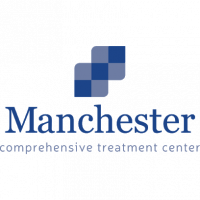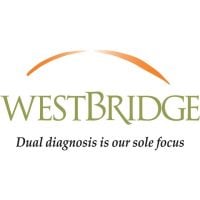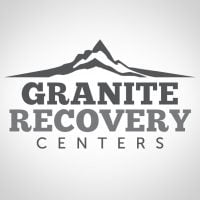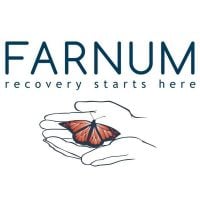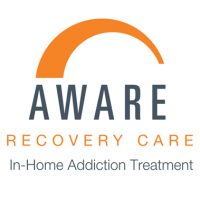WestBridge - Chestnut Street
Drug Rehab Center in Manchester, New Hampshire
WestBridge - Chestnut Street is an Addiction Treatment Facility in Manchester, NH offering comprehensive services including detoxification, inpatient care, dual diagnosis treatment, and aftercare planning to assist individuals in their journey towards sobriety.
About WestBridge - Chestnut Street in New Hampshire
WestBridge - Chestnut Street is an Addiction Treatment Facility located in Manchester, NH. It was founded in 2001 and has been providing services for individuals suffering from alcoholism, substance abuse, opioid addiction, and dual diagnosis for over 20 years. The facility offers various levels of care including detox, inpatient treatment, and dual diagnosis treatment. WestBridge - Chestnut Street is dedicated to helping individuals overcome addiction and achieve long-term recovery.
At WestBridge - Chestnut Street, individuals can expect to receive a comprehensive range of services for their addiction and substance abuse issues. The facility offers detoxification services to help individuals safely manage withdrawal symptoms. In addition to detox, they also provide inpatient treatment to facilitate the process of rehabilitation and recovery in a structured environment. WestBridge - Chestnut Street specializes in addressing dual diagnosis cases, which involves treating both substance abuse and any co-occurring mental health disorders simultaneously. With a personalized approach to treatment, WestBridge - Chestnut Street aims to empower individuals by providing them with the necessary tools and skills to maintain sobriety and enhance their overall wellbeing.
Genders
Ages
Modality
Additional
Conditions and Issues Treated
It’s not easy getting sober on one’s own, or even going to rehab and escaping the grasp of addiction by oneself. Substance abuse treatment gives addicts a place to stay sober while learning what it takes to quit for good. They will learn from others about what works and what doesn’t work with remaining drug-free.
Treatment centers such as WestBridge - Chestnut Street focus on the needs of individual addicts to heal them. There is a combination of physical and mental therapies that treat the root cause of the addiction, whether it be family problems, stress, or past traumatic events.
The final benefit of substance abuse treatment is introducing new people who can help in your recovery after you leave WestBridge - Chestnut Street. Through group therapy sessions with other addicts and attending support meetings once a day, a person will learn how to interact with others and cope with cravings. This is a chance for you to rebuild your social circle healthily after you leave treatment.
Opioid addiction starts when a person becomes addicted to legal or illegal opioids. The addiction can happen quickly, in just a matter of days. Opioid withdrawal can be extremely uncomfortable and lead the user to continue to use even if they want to quit. Stopping using an opioid requires medical observation. Sometimes inpatient treatment with a medically supervised detox is necessary for managing the withdrawal process while learning lasting tools for maintaining recovery. Medications may be used in some cases of opioid addiction.
Opioid addiction is one of New Hampshire‘s most prominent forms of addiction. It’s treated by detoxifying the body so that the chemicals from the medications no longer impact them and by therapies to correct behavior and target the root of the problem.
Recovery is not simply about stopping drug use. Recovery is working with addiction while recovering mental health issues that are fueling the addiction in the first place.
Levels of Care Offered
This center offers a variety of custom treatment tailored to individual recovery. Currently available are Detox, Dual-Diagnosis, Inpatient, with additional therapies available as listed below.
Detox is the first step of rehab. It involves giving a person time to get the toxins out of their body. During detox, the patient gets ill and they will often start using again to get rid of these unpleasant feelings. That’s why it’s so important to have a Manchester medical professional at WestBridge - Chestnut Street present. A New Hampshire medical professional will make sure patients don’t start using during detox. They will also provide medication to ease their symptoms and coach them through on a mental level.
Individuals who are suffering from severe addiction or have a high risk for dangerous health concerns are often recommended to receive inpatient treatment.
Choosing to enter an inpatient treatment program is beneficial for people who are suffering from severe addiction, or who have a high risk for dangerous health concerns.
Inpatient treatment is beneficial for:
- People who have a history of severe withdrawal.
- People who have attempted to overcome addiction on their own without success.
- People who have a history of relapse, or have recently relapsed.
- People at risk for drug overdose or withdrawal-related complications.
- People with medical conditions that are worsened by drug or alcohol use.
Therapies & Programs
Individual therapy involves one-on-one sessions between the patient and therapist. It provides patients with a safe environment to openly discuss personal and sensitive issues with the therapist. They find the therapist as someone they can trust. Individual therapy aims to identify the core issues that would have led the patient to substance abuse and address them effectively. The therapist can develop patient-specific customized solutions through individual therapy, which aids speedier recovery.
Family therapy is a group problem-solving that aims to improve communication and relationships between the addict, their family, and sometimes friends. The main goal of family therapy for drug addiction is to create an environment where communication can occur without judgment, hostility, or blame. The therapist is with the family as they learn to communicate differently, especially with the addict when s/he is using. The family can learn to reduce their enabling behavior or rally together and support each other during tough times.
An addict’s family can play a vital part in helping them to avoid relapse because they can spot the warning signs and help them get back on track before it becomes too much of a problem. Family therapy is one of the most effective ways to help addicts stay on the path to long-term sobriety. When a drug addict decides that they want to try and get sober, it takes the support of every person they love to succeed. It can be incredibly difficult for loved ones to watch an addict go through the pain and suffering of withdrawal, but by being there with them and supporting them, they can help to make sure that the addiction never returns.
Groups typically involve meetings with other recovering addicts who can relate to one another’s experiences. They might meet in person or online and typically focus on the process of staying sober rather than overcoming a specific addiction.
In these groups managed by WestBridge - Chestnut Street, addicts can build a sense of community and develop strong emotional connections with others who understand what they are going through. These beneficial relationships can help addicts overcome their cravings and prevent relapse at any point during the recovery process.
Payment Options Accepted
For specific insurance or payment methods please contact us.
Additional Details
Specifics, location, and helpful extra information.
Manchester, New Hampshire 3104 Phone Number(603) 634-4446 Meta DetailsUpdated November 25, 2023
Staff Verified
WestBridge - Chestnut Street Patient Reviews
There are no reviews yet. Be the first one to write one.
Manchester, New Hampshire Addiction Information
Opioids such as fentanyl, heroin, and prescription opioids form the largest drug threat in New Hampshire. More than 80% of all New Hampshire treatment centers admissions were related to one or more of these three drugs. Opioids such as fentanyl, heroin, and prescription opioids form the largest drug threat in New Hampshire. Since 2002, rates of alcohol dependency have also been among the highest in the country. In 2015, almost 15% of the residents were admitted to treatment centers for alcohol abuse.
Manchester, New Hampshire has a moderate level of drug addiction and abuse problems. The most common substance that people are seeking treatment for is alcohol. Over 1,100 admissions to treatment centers for drug and alcohol abuse in Manchester in 2014. There are several addiction treatment centers in and around Manchester that can help individuals and families struggling with drug addiction and abuse.
Treatment in Nearby Cities
- East Wakefield, NH (48.2 mi.)
- Manchester, NH (0.6 mi.)
- Gilford, NH (37.9 mi.)
- Claremont, NH (51.1 mi.)
- Rollinsford, NH (36.3 mi.)
Centers near WestBridge - Chestnut Street
The facility name, logo and brand are the property and registered trademarks of WestBridge - Chestnut Street, and are being used for identification and informational purposes only. Use of these names, logos and brands shall not imply endorsement. RehabNow.org is not affiliated with or sponsored by WestBridge - Chestnut Street.

